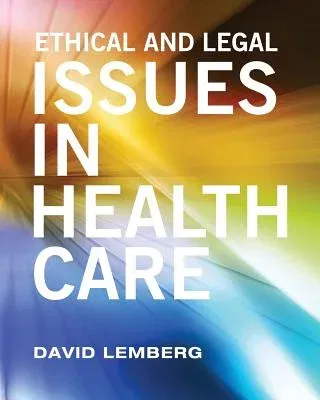Ethical and Legal Issues in Healthcare is a definitive resource for
healthcare students and professionals in nursing, medicine, and the
allied health sciences, providing a comprehensive overview and
exploration of today's ethical and legal landscape in healthcare
delivery.
The textbook presents, discusses, and analyzes the history of healthcare
ethics, key concepts and intellectual traditions, the four principles of
biomedical ethics, the history of legal systems, tort law and
negligence, landmark court decisions and legislation in the context of
healthcare ethics, and issues related to HIPAA, informed consent,
patient rights and responsibilities, and end-of-life decision-making.
Later chapters investigate healthcare issues in contemporary society,
including the Medicare and Medicaid systems, health disparities/health
inequities, bias in healthcare delivery, corporate governance,
electronic health records, and gene editing and genetic technologies.
The textbook concludes with an examination of global challenges and the
future of healthcare.
Each chapter of Ethical and Legal Issues in Healthcare features
real-world applications including case studies, discussion questions,
"do-it-yourself ethicist" exercises, and "ethics as a doctrine of
action" exercises. Overall, Ethical and Legal Issues in Healthcare
provides healthcare students and professionals with the critical
information needed to navigate the myriad ethical and legal issues that
inform and influence modern healthcare.
David Lemberg, M.S., D.C., is associate faculty professor in the
School of Health and Human Services at National University. He is a
bioethicist and serves as a community member on the Biomedical Ethics
Committee of a large medical center in the greater San Diego area. Dr.
Lemberg received his M.S. degree in bioethics from Albany Medical
College and his D.C. degree from New York Chiropractic College. He
maintained a private practice in New York City for more than 20 years.
Dr. Lemberg has provided expert commentary for articles in The New York
Times, The Translational Scientist, and Popular Science.

